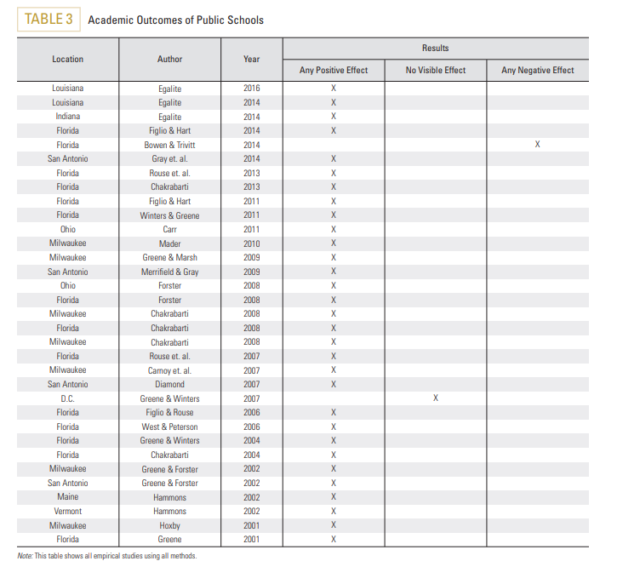If you need evidence of how powerful parent voices can be in American government, look no further than Florida’s recent gubernatorial contest.
There were a lot of nail-biters during the 2018 elections, but few were as closely watched by school choice advocates as the fight between Republican Ron DeSantis and Democrat Andrew Gillum. That race was so tight—and so fraught with controversy—that Gillum did not fully concede until November 17. (Technically, he conceded on election night, then re-entered the race when a recount was ordered.)
In the end, DeSantis won by a margin of .4 percent, or about 32,000 votes out of more than 8.2 million ballots cast. For that victory, a recent article in the Wall Street Journal by William Mattox argues that Governor-Elect DeSantis should thank the roughly 100,000 African American women who voted for him because they support school choice.
Mr. Gillum, on the other hand, has to consider the possibility that his bid to become the state’s first black governor was torpedoed by his opposition to K-12 private school scholarship programs.
For those who don’t know, Florida operates the nation’s largest scholarship tax credit program. Enacted in 2001, that program serves more than 100,000 students attending around 1,500 private schools across the state. The Sunshine State is also home to a large special-needs voucher program, an ESA program, and now the anti-bullying Hope Scholarship Program.
The vast majority of students participating in the scholarship tax credit program come from minority families, with roughly 42 percent coming from African American families alone. Most of these students’ parents are registered Democrats, which means a very large portion of the 100,000 African American women who voted for DeSantis broke with their partisan preferences to do so. According to Mattox, this “ticket-splitting” occurred because DeSantis supported the scholarship programs on which their families depend. Had Gillum done the same—or had he at least not so publicly opposed choice policies—the outcome of the race might have been very different.
The data generally support this conclusion:
- About 18 percent of African American women voted for DeSantis, while only 9 percent voted for Republican Senate candidate (and outgoing governor) Rick Scott.
- That 18 percent represents more than double the GOP’s national average of 7 percent with African American women.
- Despite general leanings toward the Democratic side of the aisle, strong majorities of African Americans support scholarship tax credits and other forms of private school scholarship programs.
It’s important to note that election behavior is complicated stuff, and there could be other issues that partially explain DeSantis’s higher-than-average support from a constituency that normally would not stand behind him. However, it’s hard to deny the fact that support for choice policies played a major role in the election, particularly with so many tens of thousands of families benefiting from expanded educational opportunity in Florida.
The moral of this story is that elected officials on both sides of the aisle would do well to remember the “school choice mom” vote. Parents deeply value opportunity for their children, and opposing the programs that make that opportunity possible can have serious consequences for those seeking office.
Feeling inspired? If you’d like to share your school choice story with your elected officials, you can do so in seconds by clicking the button below.



